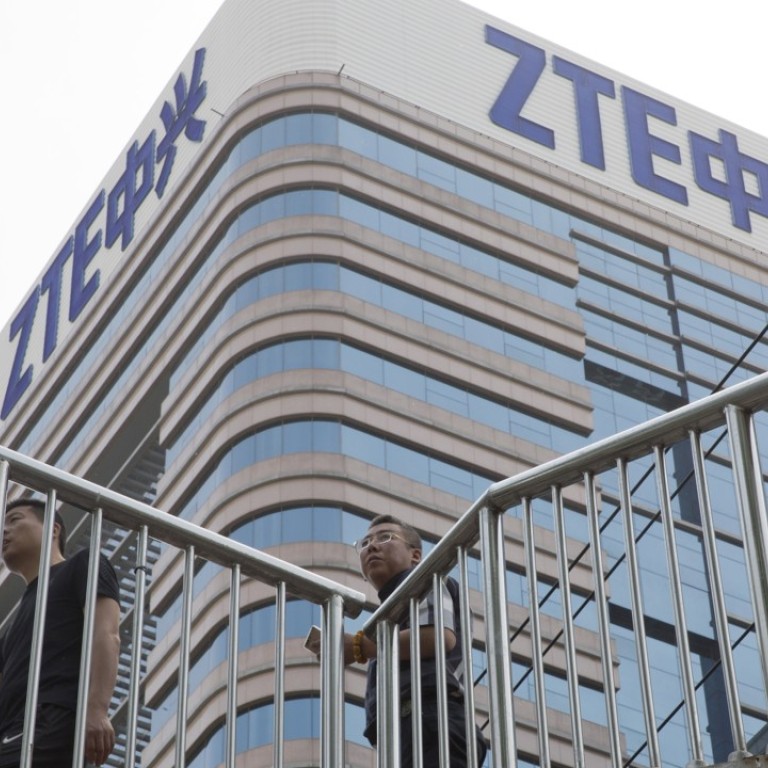
US House passes defence bill while keeping a wary eye on Chinese investments
The US$716 billion budget bill prohibits the US government, including the Pentagon, from using products from the Chinese telecoms company ZTE
The US House of Representatives on Thursday passed a US$716 billion defence appropriations bill that includes language to tighten regulations on Chinese investments in the United States and prohibit the US government from buying products from major Chinese telecoms firms, including ZTE.
The John S. McCain National Defence Authorisation Act passed the House by a vote of 359-54. It goes now to the Senate for its approval before being sent to President Donald Trump to sign into law.
The measure restricts government agencies, including the military, from using products and services by ZTE and Huawei Technologies because of national security concerns, but the limits were greatly reduced from what had been initially drafted.
Some senators backed down last week from their attempt to reimpose a ban the Commerce Department originally put on ZTE in April, stemming from the company’s violations of US business law by selling products to US-sanctioned Iran and North Korea.
That ban kept ZTE, the second largest telecommunications equipment maker in China, from buying components from American suppliers, including the chip maker Qualcomm, for seven years – a move that led to ZTE closing major operations.
Trump, in what he called a favour to Chinese President Xi Jinping, directed the Commerce Department to come up with alternative penalties: US$1.4 billion in fines and escrowed accounts, a new board of managers and compliance oversight.
Trump later met with Republican legislators to explain that leniency on ZTE was part of a larger strategy in his negotiations with China.
A compromise measure in Thursday’s bill prevents the Pentagon from buying from ZTE but lets the company continue doing business in the US.

Senator Chris Van Hollen, Democrat of Maryland, said in a tweet on Thursday that “ZTE stole our technology, poses an espionage threat, and violated our sanctions. Why did Trump cave to President Xi?”
Senator Marco Rubio, a Florida Republican, tweeted that the Commerce Department “does China a favor & reverses ban on ZTE buying chips from Qualcomm. And how did China return the favor?
“By blocking Qualcomm deal with NXP despite the begging & pleading from Treasury & Commerce Department. We should reimpose ZTE ban.”
To address their national security concerns, lawmakers instead passed Foreign Investment Risk Review Modernisation Act (FIRRMA), a measure which, among other actions, strengthens the authority and expands the reach of the Committee on Foreign Investment in the United States (CFIUS), an inter-agency body that assesses such investments for potential threats to national security.
Additional reporting by Reuters

